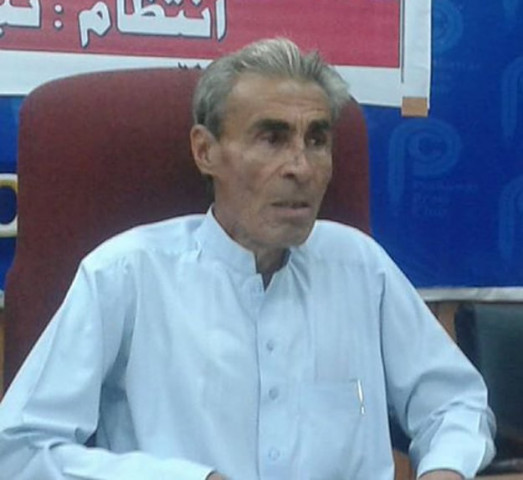Transitions: Tribal elder Noorat Khan Afridi passes away in Jamrud
75-year-old politician served as minister in Afghanistan

75-year-old politician served as minister in Afghanistan. PHOTO: FACEBOOK
A large number of people from both Peshawar and Khyber Agency attended his last rites.
Afridi, who was commonly known as Raees Sahib, belonged to the Kokikhel sub-clan of the Afridi tribe. He studied at Islamia College—now Islamia College University—in Peshawar. Driven by a burning desire to alter the status quo, Afridi entered the political arena in the early 1960s by joining the now defunct National Awami Party (NAP).
Before this, Afridi was involved in political activism since 1956. He was an active proponent of freedom fighter Mirza Ali Khan, also known as Faqir of Ipi, who began rallying support for a separate state of Pakhtunistan.
Stint in Afghanistan
His longest stint in public office was as director in the Ministry of Tribal and Border Affairs in Afghanistan. Afridi looked after the ministry till the fall of Mohammad Najibullah’s regime in 1992.
After the Taliban government was toppled from power and President Hamid Karzai seized the reins, Afridi was offered the opportunity to run the same ministry in Afghanistan. However, he refused the offer.
On the forefront
It was Afridi’s involvement in the politics of Khyber-Pakhtunkhwa that is remembered. The politician played a pivotal role in a series of movements against the late Field Marshal Ayub Khan and General Ziaul Haq.
Recently, the politician had been on the forefront of a movement to integrate the Federally Administered Tribal Areas (Fata) with K-P and abolish the Frontier Crimes Regulations, a colonial law that has fallen out of favour among tribespeople. He was also among those tribal elders who vehemently opposed foreign intervention in Afghanistan’s affairs.
Published in The Express Tribune, April 18th, 2016.













COMMENTS
Comments are moderated and generally will be posted if they are on-topic and not abusive.
For more information, please see our Comments FAQ